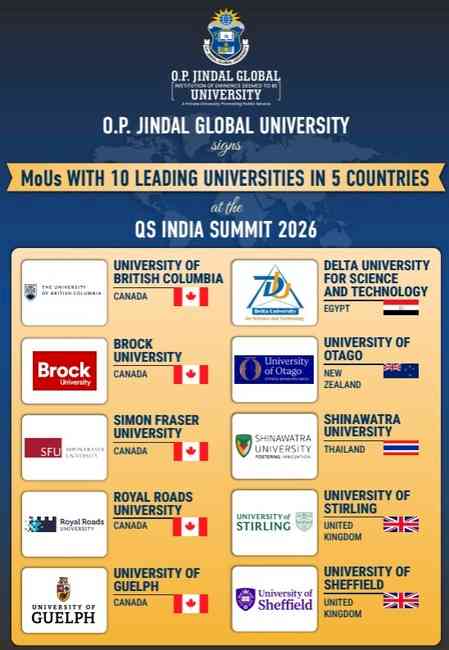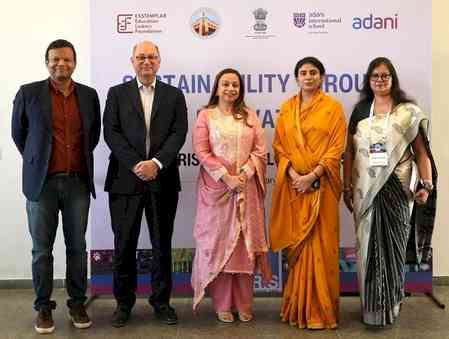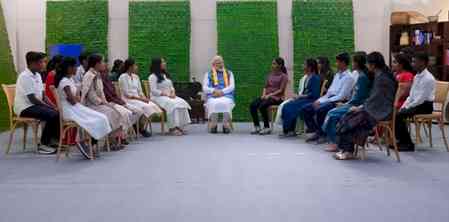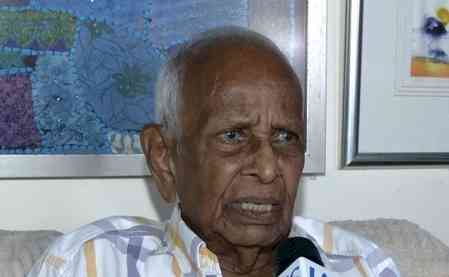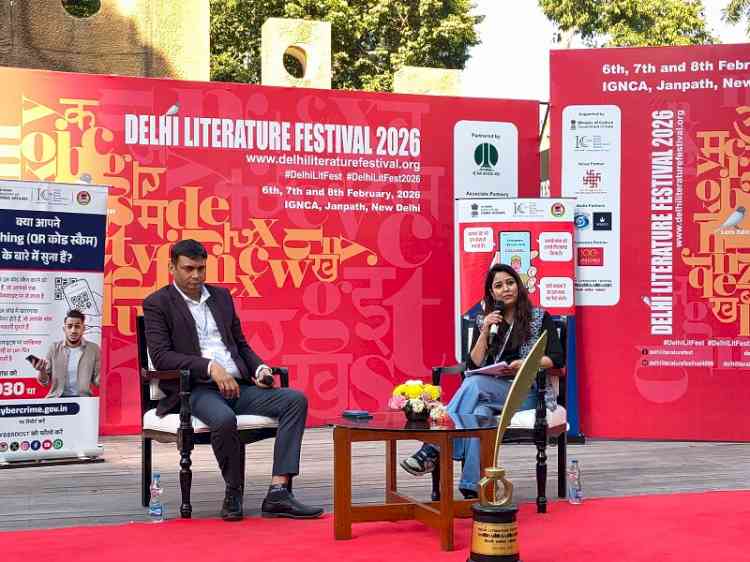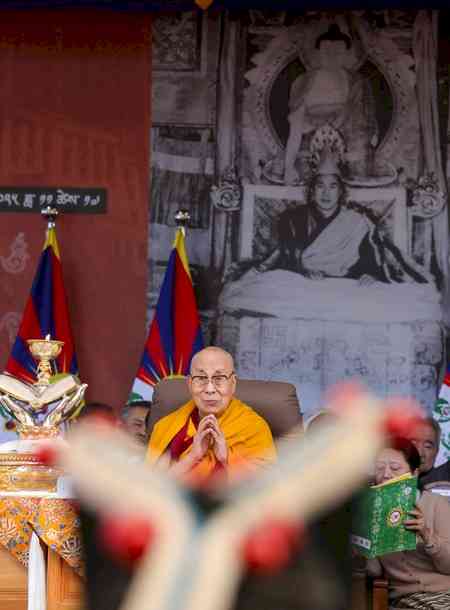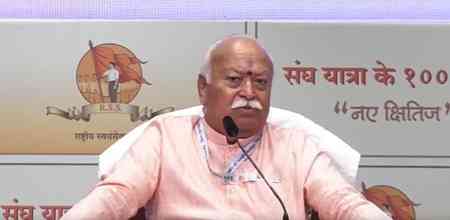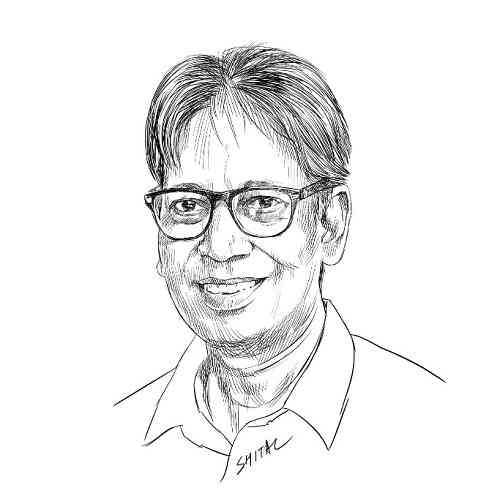International Conference on Circular Economy: Driving Towards Sustainability
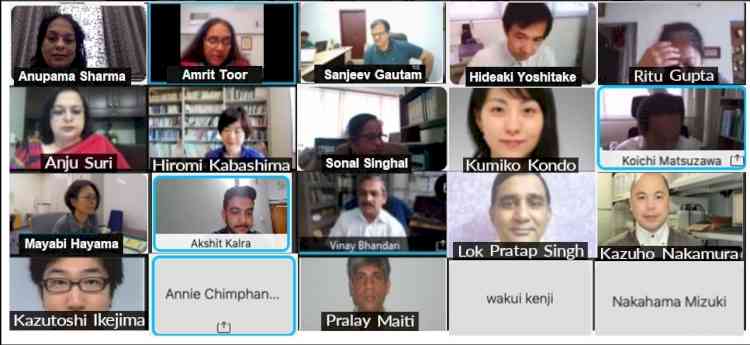
Chandigarh August 19, 2021: Panjab University, Chandigarh in collaboration with Yokohama National University, Japan organized the International Conference On Circular Economy: Driving Towards Sustainability (ICCE-2021) on August 19-20, 2021. Over 350 delegates participated in the conference from all over the globe.
The circular economy aims to change the paradigm of present linear economy by limiting the environmental impact and waste of resources, as well as increasing efficiency at all stages of the product economy. A circular economy is based on the principles of designing out waste and pollution, keeping products and materials in use, and regenerating natural systems. Sustainability and circular economy are of growing interest for governments, investors, companies, and civil society. This international seminar was an initiative to recognise the need and importance sustainability, share knowledge, tools and measures that we need to adopt to imbibe the principles of Circular Economy.
This seminar is being jointly organized by PU and Yokohama National University, Japan to enable the researchers, academicians and the practitioners in fostering innovative solutions for the development of a circular economy across the value chain with the aim of increasing the long-term health and resilience of our planet, through innovative technology solutions. Broad theme is on how can we create and consume goods that are renewable, repairable, reusable, and recyclable?
Day 1 of ICCE-2021 started with an inaugural session. Prof. Anupama Sharma, Dean Alumni Relations and Conference Co-Chair introduced the theme of the international conference to the audience. Panjab University, Chandigarh. She briefly talked about sustainable development and circular economy. She emphasized that adopting practices of circular economy and sustianblity is our combine responsibility.
Prof. Amrit Pal Toor, Chairperson, Dr. SSBUICET, PU welcomed the chief patrons, Prof. Raj Kumar, Vice-Chancellor, Panjab University, India, and Prof. Hiromi Kabashima, YNU, Japan, the invited speakers and all the participants in the session.
The chief guest, Prof Hiromi Kabashima, Vice President, YNU, Japan briefly introduced YNU and gave best wishes for ICCE-2021. She also conveyed her wishes for India’s 75th independence day celebrations and saluted Prime Minister’s quest towards Atmanirbhar Bharat.
Prof. Anju Suri, Dean International, Panjab University, India extended her vote of thanks to both the universities for coming together to organize this conference. She congratulated Prof. Hideaki and Prof. Anupama Sharma for starting this initiative and informed the audience than an MOU will be signed between the two universities in October 2021. She emphasized that there is a necessity to work collectively and collaboratively to build newer processes which help maintain nature’s delicate balance. Prof. Suri motivated all the participants and wished them luck for successful conference proceedings. Prof. Ritu Gupta, Dr. SSBUICET, Panjab University ended the inaugural session with a vote of thanks.
The technical session started with a lecture on Safe Water and Sustainable Technology Initiative from Indian Knowledgebase by Dr. Vinay M Bhandari, NCL, Pune. Dr. Bhandari discussed the conventional water disinfection method along with their usage percentages. Disadvantages of the conventional method along with the need to adopt new methods were explained. He elaborated CSIR-NCL's Vortex Diode in detail followed by CSIR-NCL's Green Technology for the disinfection of water. He shared numerous pragmatic approaches and technology transfers which have been successfully condiucetd by his groups at NCL, CSIR, Pune.
Prof. Annie Chimpangho, Professor, Stellenbosch University, South Africa presented a lecture on the topic ‘From Trash to High-Value Bio-products: Multi-Objective Bio-conversion of Biomass Waste in Biorefineries into High-Value Products'- A strategy for enhancing the circular economy.’ Prof. Annie introduced the topic and shared valuable information about the Stellenbosch campus. Coming from the faculty of engineering, Prof. Annie highlighted the vital concept of bioprocess engineering and water technology. Subdividing her areas of expertise into biomass processing, bioprocesses, and sustainable bioenergy systems, she explained multiple values added product streams from biomass, analogous to petroleum refinery in addition to explaining novel fractionation methods. She explained the concerns surrounding the value and multi-objective fractionation, modification in nature's way, and obtaining cellulose nanoparticles from paper sludge. Prof. Annie concluded her presentation with emphasis on the design of biorefinery, techno-economic, and sustainability studies
Dr. Koichi Matsuzawa from YNU, Japan shared his knowledge with us on the topic Status and Prospective toward Green Hydrogen Society in Japan. He talked about the Hydrogen energy ministerial meeting (H2 EM 2020), which was held as an online event on Oct. 14, 2020, with cabinet members and officials from 23 countries, regions, and organizations. This event published a “Global Action Agenda (GAA) Progress Report.” He elaborated the development of anode electrocatalyst for the polymer electrolyte water electrolysis (PEWE) with low cost that is a promising device for Green Hydrogen production.
Prof. Kumiko Kondo, YNU, Japan in her presentation, emphasized the concept of CSV (Creating Shared Value) initiatives where companies adopt climate change adaptation methods to achieve fair trade and environmentally sound technologies. She explained how CSV is not social responsibility, but a joint venture to achieve economic and societal benefits and is integral to profit maximization. Dr. Kumiko outlined the 3 elements of CSV-Reconceiving products and markets, redefining productivity in the value chain, enabling local cluster development, and the value chain formation in addition to the connection between competitive advantages and social issues. She concluded her presentation with an expert opinion on CSV in the context of the circular economy.
There was a poster session in the evening where 50 posters were presented by students and faculty of Panjab University and Japan.



 cityairnews
cityairnews 
